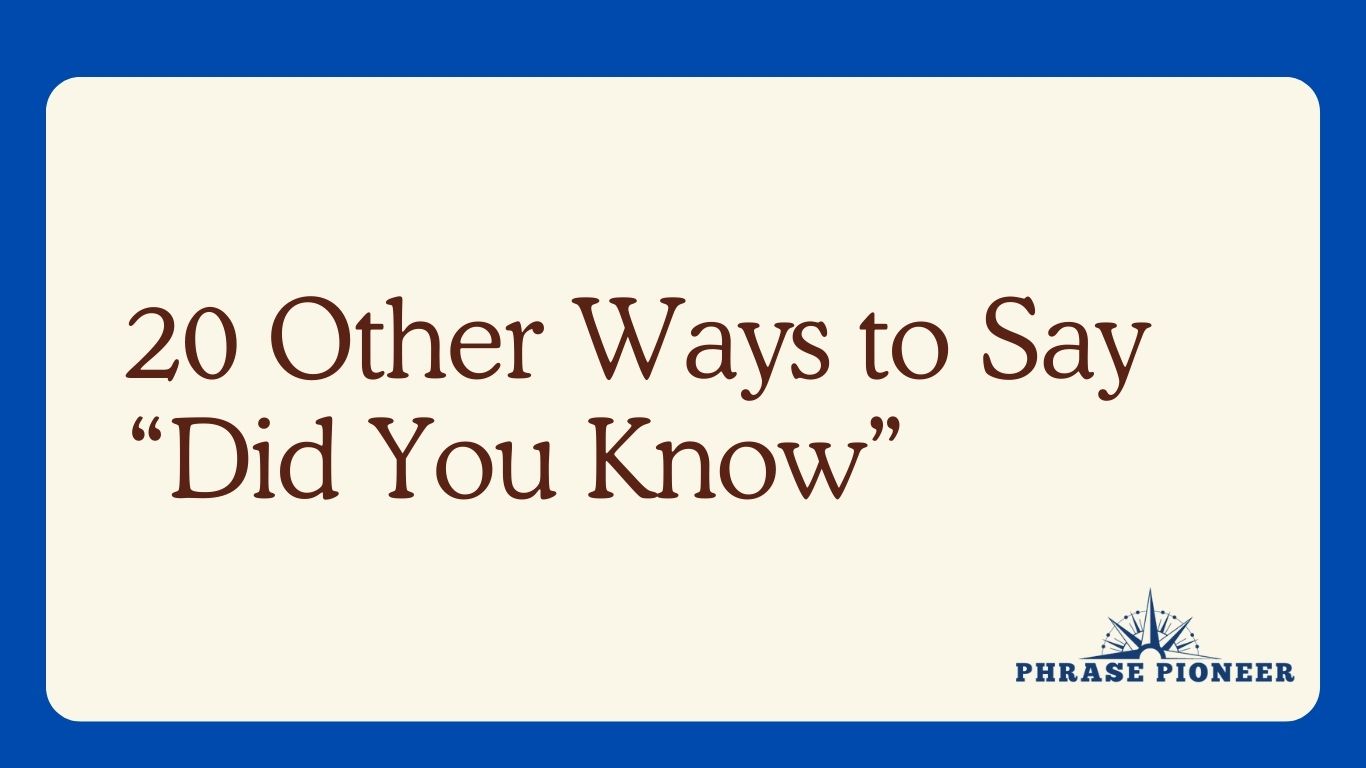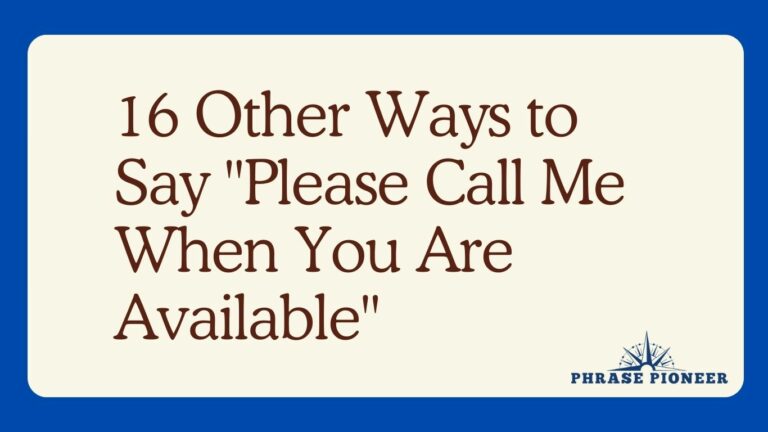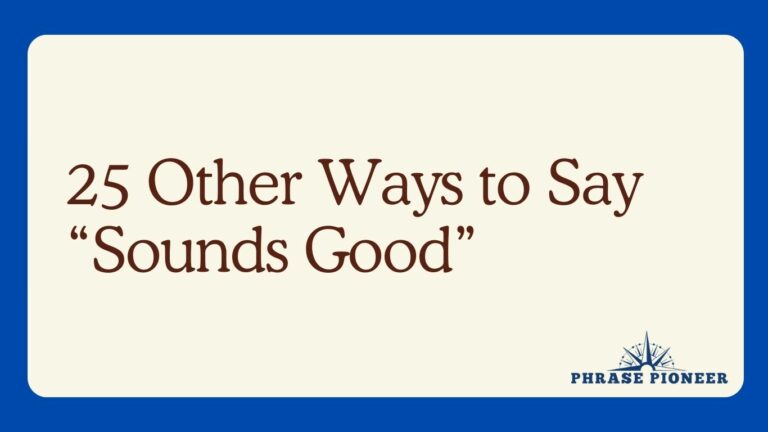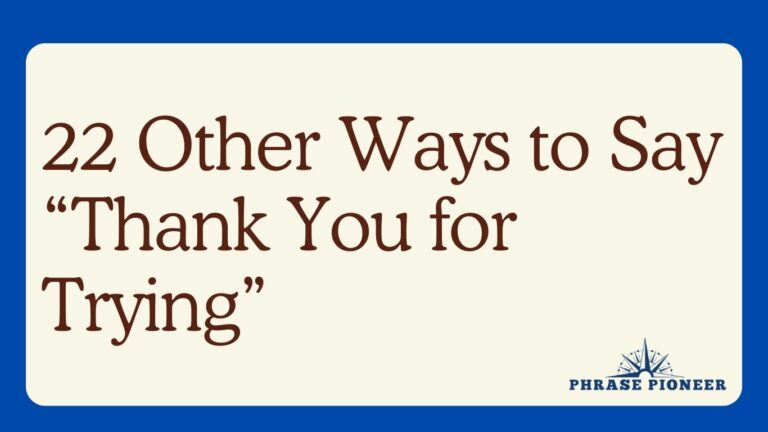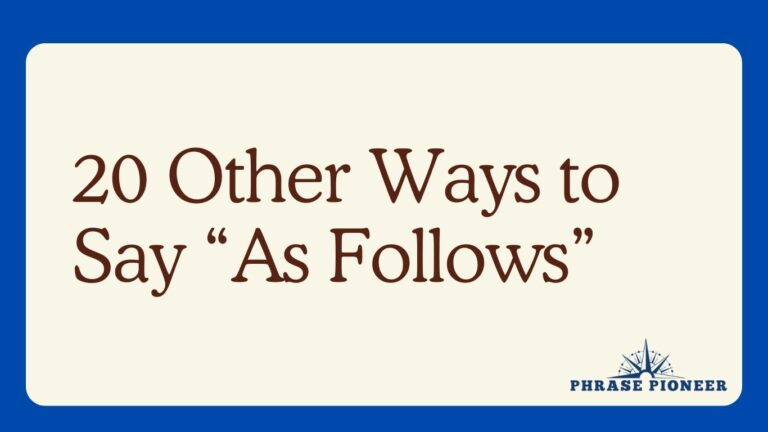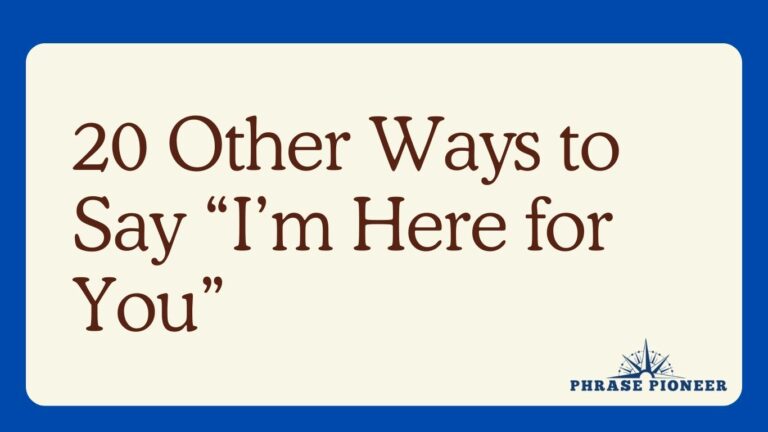20 Other Ways to Say “Did You Know”
The phrase “Did you know” is a common way to introduce a piece of trivia, start a discussion with an interesting fact, or convey information that might be surprising or enlightening to the listener.
Depending on your audience and the context, different variations of this phrase might be more appropriate or engaging.
Here are 20 alternative ways to phrase “Did you know,” each with an example and an explanation.
Trivia Starters
Were you aware…
- Example: “Were you aware that honey never spoils and has been found edible in ancient tombs?”
- Explanation: A more formal way of presenting an interesting fact that might not be commonly known.
Have you heard…
- Example: “Have you heard that the shortest war in history lasted only 38 minutes?”
- Explanation: This implies that the information might be news to the listener, like a recent discovery or a lesser-known fact.
I thought you might find it interesting that…
- Example: “I thought you might find it interesting that octopuses have three hearts.”
- Explanation: Expresses a personalized touch, suggesting the information is shared because it might specifically appeal to the listener.
Enlightening Inquiries
Are you familiar with the idea that…
- Example: “Are you familiar with the idea that some trees can communicate through underground networks?”
- Explanation: This implies a discussion or exploration of concepts the listener might already have some knowledge of.
You may not know but…
- Example: “You may not know but, the inventor of the Pringles can is actually buried in one.”
- Explanation: Begins with a presumption of the listener’s possible ignorance on a subject, introducing a fact as an enlightening tidbit.
Isn’t it curious that…
- Example: “Isn’t it curious that a single lightning strike can contain up to one billion volts of electricity?”
- Explanation: Framed as a rhetorical question, highlighting the surprising or remarkable nature of the fact.
Informative Prompts
Did it ever occur to you that…
- Example: “Did it ever occur to you that sharks have been around longer than trees?”
- Explanation: Invites the listener to consider a fact they might have never thought about before.
Fancy this…
- Example: “Fancy this: dolphins have names for each other and can call out specifically to loved ones.”
- Explanation: A British English colloquial way of sharing an interesting piece of trivia.
Bet you didn’t know…
- Example: “Bet you didn’t know that polar bear fur is actually transparent and only looks white because it reflects light.”
- Explanation: Presents a fact in a challenging or playful manner, almost as if making a bet on the listener’s prior knowledge.
Conversation Sparks
Have you ever considered…
- Example: “Have you ever considered that your taste buds change every two weeks?”
- Explanation: Invites the listener to think about a concept or fact in a reflective manner.
I’ve recently learned that…
- Example: “I’ve recently learned that you can see a rainbow as a full circle from an airplane.”
- Explanation: Introduces a fact as something the speaker has just discovered and is sharing as new knowledge.
What if I told you that…
- Example: “What if I told you that bees can recognize human faces?”
- Explanation: Positions the fact as a revelation that might change the way the listener perceives something.
Knowledge Sharing
Here’s a fascinating tidbit…
- Example: “Here’s a fascinating tidbit: strawberries aren’t actually berries, but bananas are.”
- Explanation: Presents a fact as a “tidbit” or small, interesting piece of knowledge.
An interesting fact is that…
- Example: “An interesting fact is that your body has enough iron in it to make a metal nail.”
- Explanation: This straightforward statement introduces a fact explicitly as interesting, assuming that it will capture the listener’s attention.
A little bird told me that…
- Example: “A little bird told me that there are more stars in the universe than grains of sand on Earth’s beaches.”
- Explanation: An idiomatic expression indicating that the speaker came across this information through somewhat informal or indirect means.
Insightful Suggestions
It’s quite astonishing that…
- Example: “It’s quite astonishing that some cats are actually allergic to humans, just like we can be allergic to them.”
- Explanation: Suggests to the listener that the forthcoming fact is something surprising or noteworthy.
Would you believe if I said…
- Example: “Would you believe if I said that an octopus’s tentacles can taste things?”
- Explanation: Engages the listener’s sense of belief and wonder before presenting a possibly astonishing fact.
It’s a little-known fact that…
- Example: “It’s a little-known fact that there are more possible iterations of a game of chess than there are atoms in the known universe.”
- Explanation: Signifies that the information is obscure or not widely recognized.
In conclusion, the way we introduce new information or pose interesting facts can greatly influence the engagement and response of our audience. Whether in casual conversation, teaching, or sharing professional insights, using novel and appealing prompts can spark curiosity, enhance the learning experience, and encourage dialogue. By choosing a fitting alternative to “Did you know,” one can tailor their communication style to match the audience, setting the tone for a compelling and enlightening exchange of knowledge and ideas.

